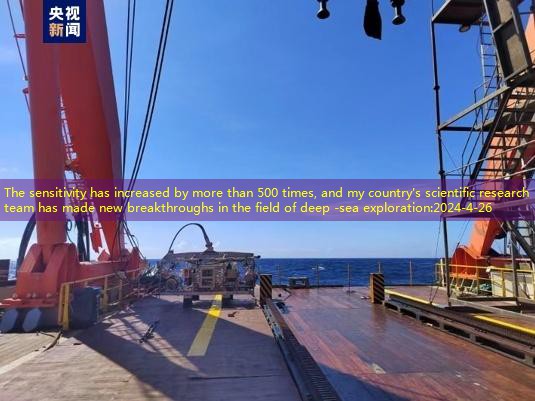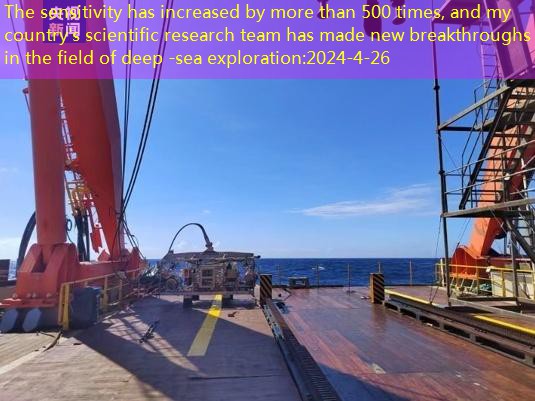The sensitivity has increased by more than 500 times, and my country’s scientific research team has made new breakthroughs in the field of deep -sea exploration
The reporter learned from the Hefei Material Science Research Institute of the Chinese Academy of Sciences that recently, researchers such as Wang Chilai, a researcher team of the Institute of Intelligent Machinery Research Institute of the Institute of Institute of Intelligence Machinery, have achieved new breakthroughs in the field of deep -sea exploration.Based on the research on the deep sea mass spectrometry in the early stage, scientific researchers increased the sensitivity of water dissolving methane detection by more than 500 times to achieve the level of dissolving methane detection in the ocean and lakes, and realized the leap from the monitoring of the background methane monitoring from the dissolved methane abnormal incident.

Methane is the second largest greenhouse gas second only to carbon dioxide, and its emissions have an important impact on global climate change.The methane discharged from the water ecosystems such as the ocean and lakes accounts for about 53%of the global total. Therefore, it is important to effectively monitor the discharge of marine methane to the atmosphere.In addition, methane is also the main component of natural gas hydrochties, and this new type of clean energy is regarded as one of the most potential energy sources in the 21st century.Therefore, marine methane monitoring has important value for the perception of marine environment, discovery of methane abnormal areas, marine energy exploration, and marine scientific research.
Due to the characteristics of low methane concentration and large changes in the ocean, the current detection data of marine dissolving methane are still very small, and there are still great uncertainty on marine methane flux.The deep -sea mass spectrometer is an important marine equipment for the rapid detection of marine dissolving gas. Because of its limited detection sensitivity, it can only detect specific areas or abnormal events.In 2023, the team developed a deep sea mass spectrometer (named Zhiwei Deep Sea Underwater Spectrum, IMS-UMS), and successfully completed many sea tests in a certain sea area, obtaining important dissolving gas information of marine profiles.On this basis, in order to further improve the sensitivity of the detection, the scientific research team developed a small volume and low -power online water removal system for the high -volume and low -power online water road design.Its integration is installed in the wisdom and micro number deep -sea mass spectrometer.While maintaining the target target to detect the high permeability of the gas, the vacuum of the mass spectrometer exceeds 2 orders of magnitude.More than 500 times, reaching the level of methane base signal detection in waters such as deep sea and lakes, it is expected to achieve non -difference monitoring of marine dissolving methane.
In the next step, scientific researchers will carry out the in situ detection research of large space and width time in the field of high space, as well as H2, HE, etc., such as H2, HE, etc., such as high -concentration gas in situ testing and research.The research work provides an important technical basis for further realizing the calculation of methane flux, global climate research, the search of feathers, and the discovery of cold springs.
Report/feedback

